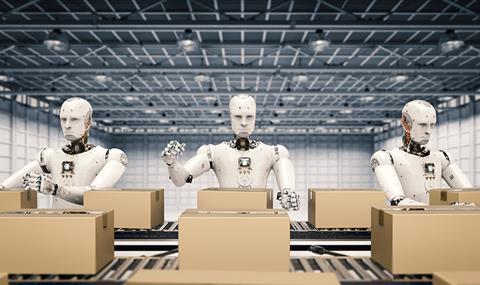
Skills for Logistics MD David Coombes argues we are on the cusp of a robotic revolution, and questions what this could mean for the industry's workforce.
Watching the speeding autonomous trucks on Blade Runner 2049 recently has made me think that in 30 years’ time this in all probability will be common place
We are on the cusp of a robotic revolution in the context of automated human replacements in the warehouse and self-driving commercial vehicles on the road, rail, air and sea
In a future trends survey recently taken by 350 logistics industry professionals, 10% currently use robotics technology in their operations, 70% see robotics as a growing trend in the next three years
60% of the participants said they would consider having a driverless vehicle in their fleet and make use of vehicle platooning, the technology is already here, DAF is participating in a two year platooning trial around the UK and Volvo has also demonstrated successfully partially automated platooning. Mercedes has unveiled their future autonomous truck of 2025.
The use of robots in the warehouse has of course been a growing trend for the last 20 years or so however in my opinion we are now only 10 years away from fully automated warehouses being the norm rather than the exception especially in the larger logistics operations.
In 2028 warehouse robots will have evolved to a point where they are capable of operating in conventionally configured warehouses, with the majority of activities automated from receipt, put away, pick pack and dispatch, a combination of automated trucks, conveyor systems and picking robots will enable inventory to pass through the DC with very little human intervention.
Warehouse productivity gains are thought to be between 35 and 40%
It is tasks rather than jobs that that will be automated, meaning a re-organisation of personnel and operations in which smaller numbers of skilled workers are redeployed to areas that are better suited to their skills while repetitive, time consuming and hazardous tasks are undertaken by robots.
What does this mean for the future skills needed in our workforce?
Operational excellence is now considered to be a hygiene factor and not a differentiator, customers expect us to stretch their thinking and identify unknown and yet to be proven ways to improve the service we supply.
Our future workforce needs to be digitally transformed with innovative and disruptive leadership - something I will be covering in much more detail in my column next month.













